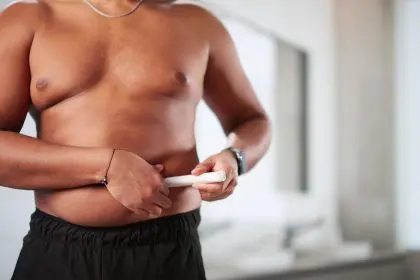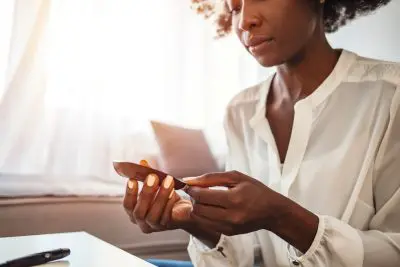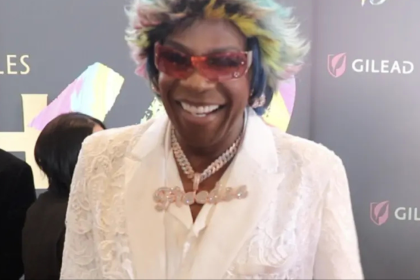
According to the Centers for Disease Control and Prevention, a person with prediabetes has a blood sugar level higher than normal, but not high enough for a diagnosis of diabetes. He or she is at higher risk for developing type 2 diabetes and other serious health problems, including heart disease, and stroke. Without lifestyle changes to improve their health, 15 to 30 percent of people with prediabetes will develop type 2 diabetes within five years.
National Diabetes Prevention Program coordinator Vanessa J. Summers manages the program and the lifestyle coaches who teach the lifestyle change for those diagnosed as prediabetic.
“The program comes from the Centers for Disease Control. We have a four-year grant through The Black Women’s Health Imperative of Washington, D.C. “This program changes lives; with a few lifestyle changes and a mindset of change you can offset the onset of Diabetes. Diabetes does not have to be your destiny,” she says.
Here, Summers shares the impact this program has had on her personally and how prediabetes and diabetes affect the Black community.
How have prediabetes and diabetes affected the Black community?
Diabetes is devastating the African American community. Diabetes is a part of our history. We all know someone in our community that has lost a limb or their life to diabetes. Like I said before diabetes does not have to be your destiny.
I was diagnosed with dabetes in 2008. I started out a four shot a day diabetic and two medicines. Today, I am only on one shot and my other meds. My weight is down, I still have a ways to go but I am learning what is good for me and what isn’t.
We have food deserts in the African American, Hispanic/Latino communities. When I say food deserts, {there are] no grocery stores within the communities or grocery stores on the main bus line. And there is no access to fresh fruits and vegetables. We have a society of people that grew up on fast food and or processed food.
Why is there such a big difference around the subject of prediabetes in the African American community?
In the African American community, diabetes is so commonplace that they see it as “just something that happens.” We have to get back to fresh fruits and vegetables, learn how to cook a healthy meal and move more. We need to leave soda and processed food alone. It also goes back to the food deserts; there is a great need for grocery stores in our communities.
This is why the “Dance For Life” event is so exciting and so very important. It’s an event designed to bring awareness of prediabetes to the Indianapolis community. We want to teach the community with a few lifestyle changes you can ward off the onset of type 2 diabetes.
“DANCE FOR LIFE” will take place on Thursday, April 23, 2015. It is a line dance party featuring actor and choreographer Darrin Henson (Soul Food, Stomp the Yard) and will be held at Edna Martin Christian Center located at 2605 E. 25th St. from 4 to 8 p.m.
What are some of the statistics regarding prediabetes within the African American community?
In America we know there are an estimated 86 million prediabetics and most of them don’t know they are prediabetics. That means that 1 in 3 people are prediabetics.
What services are available for someone with prediabetes?
The National Diabetes Prevention Program can help those with prediabetes. NDPP is a 16 week program for one hour a week. And there is a maintenance portion that is one hour a month for six months. During the 16 weeks you learn about what prediabetes is and how to prevent it. You will learn about calories, fat grams, and correct food portions. We ask you to track your food and we weigh in at those meetings. Those are just a few of the many things you will learn. We also ask that you put 30 minutes of exercise in your life a day. Only 150 minutes a week. You make small changes in your life you can lose 5 – 7 percent of your body weight. With the weight loss you ward off the onset of type 2 diabetes.
In serving in this position, what have you learned about yourself?
All change is hard. First you have to realize that the change starts with you. If people see me working on me, that can be motivation. I also could not run a program that I didn’t believe in or live.
FOR MORE INFORMATION, PLEASE CONTACT VANESSA SUMMERS @317-435-8446 OR [email protected].












